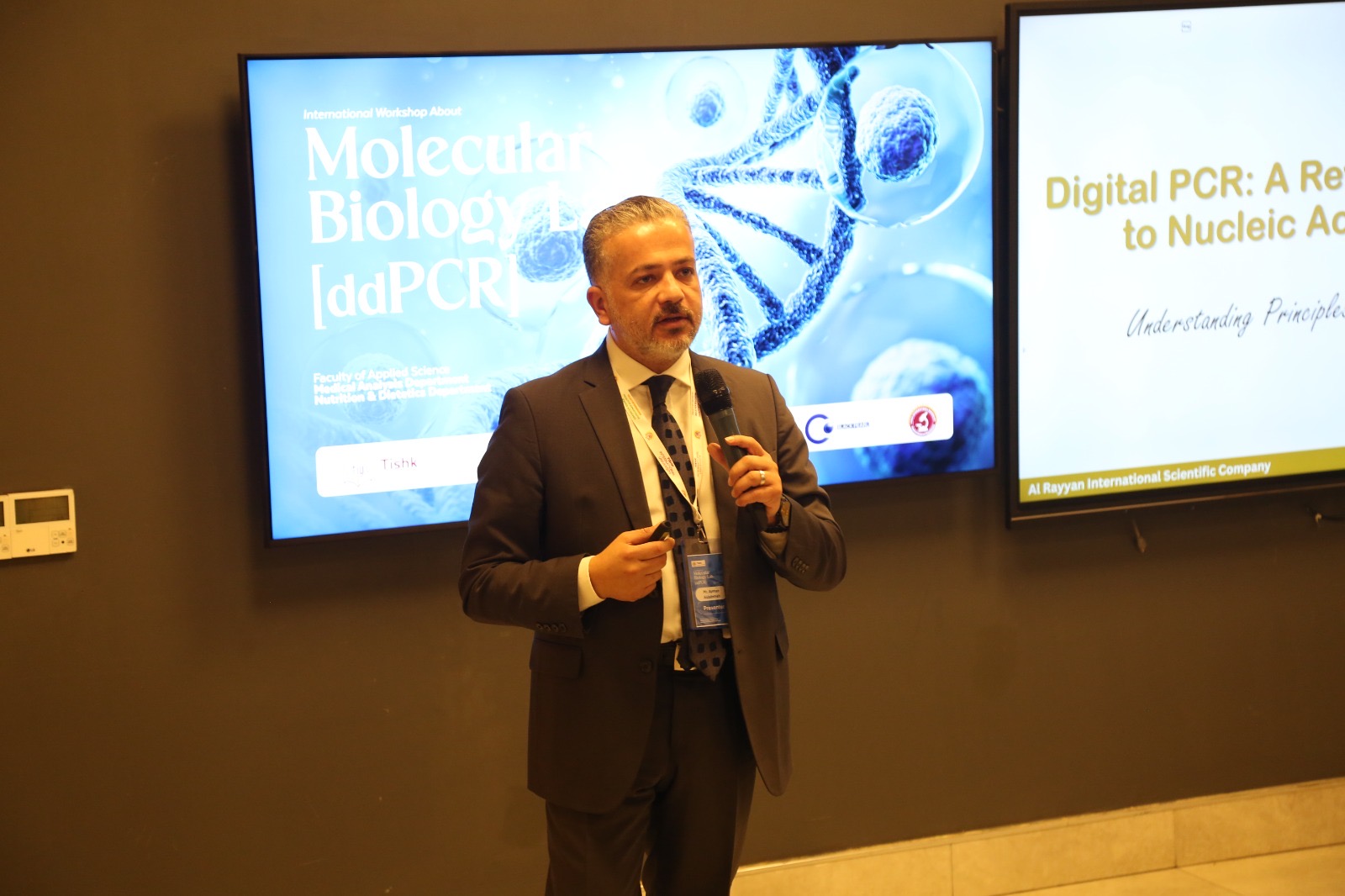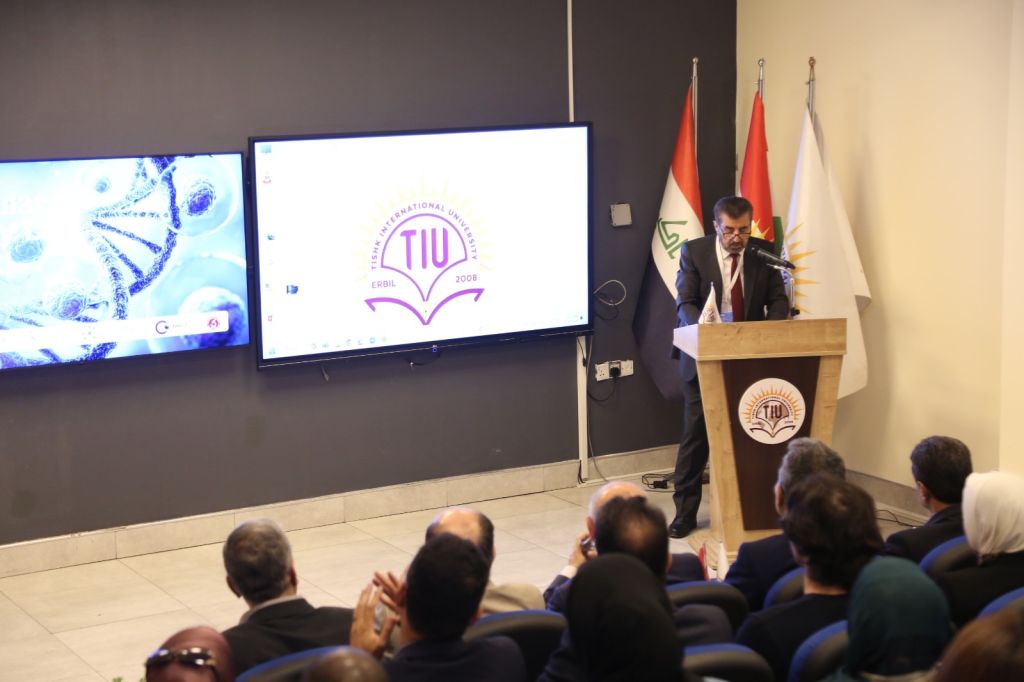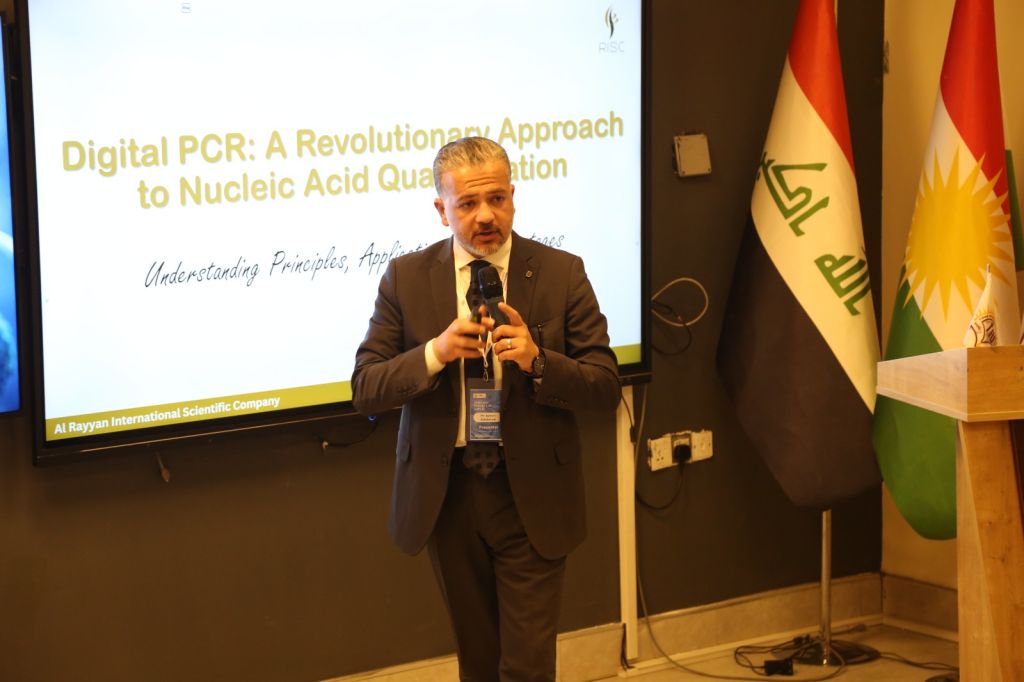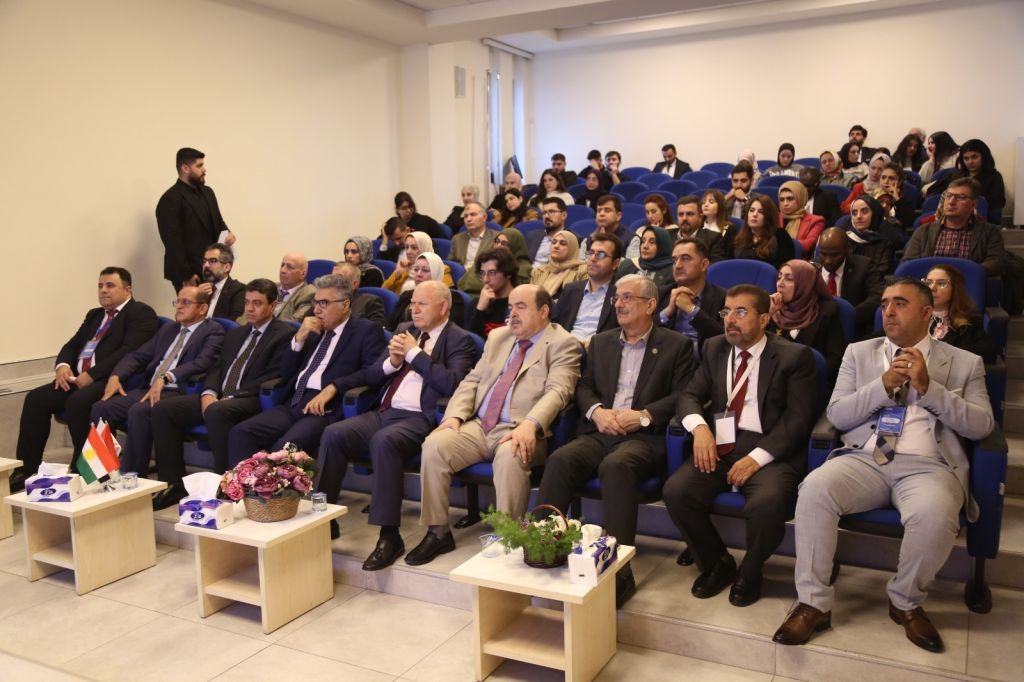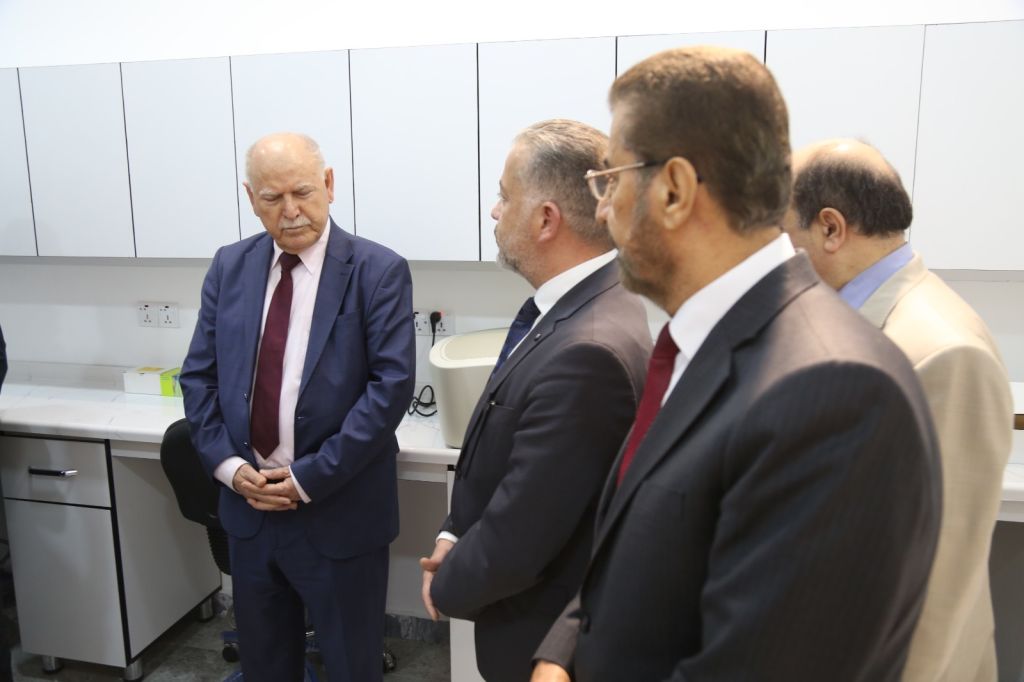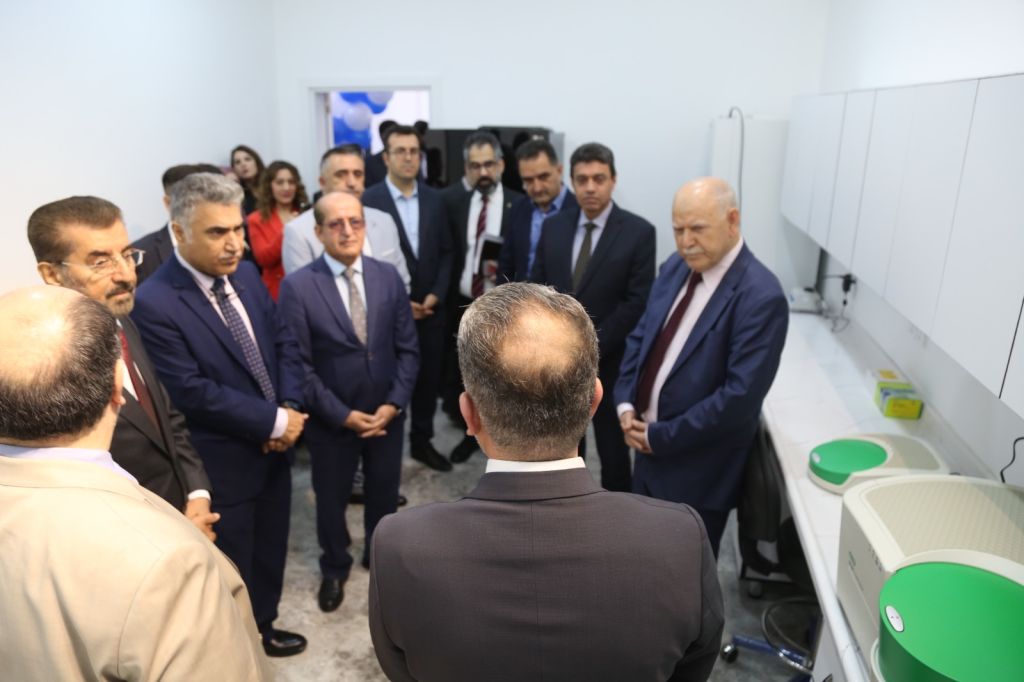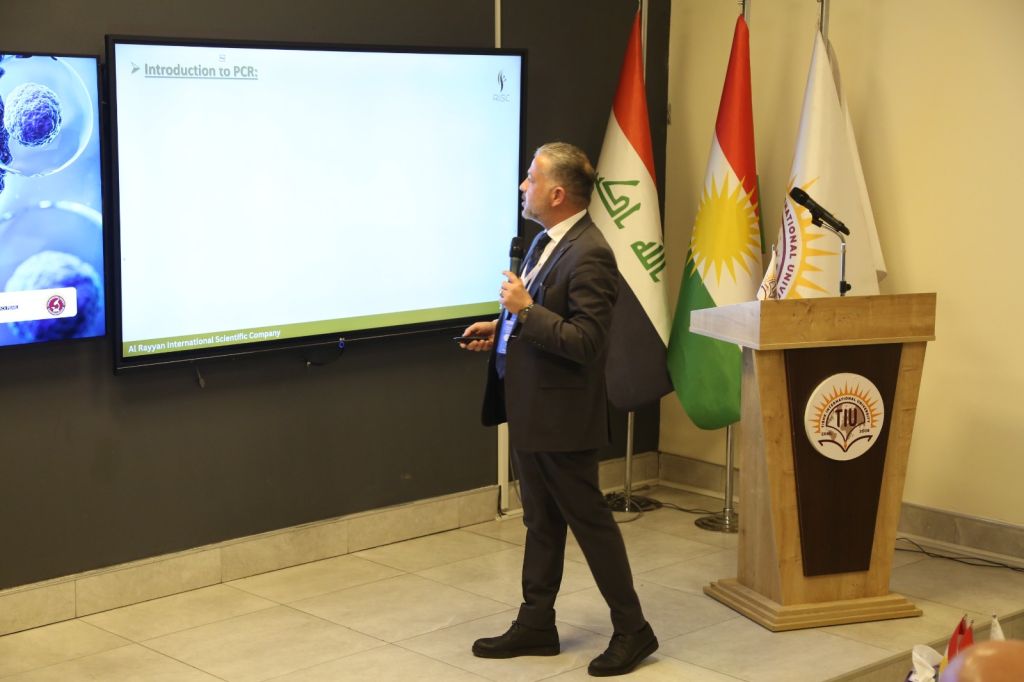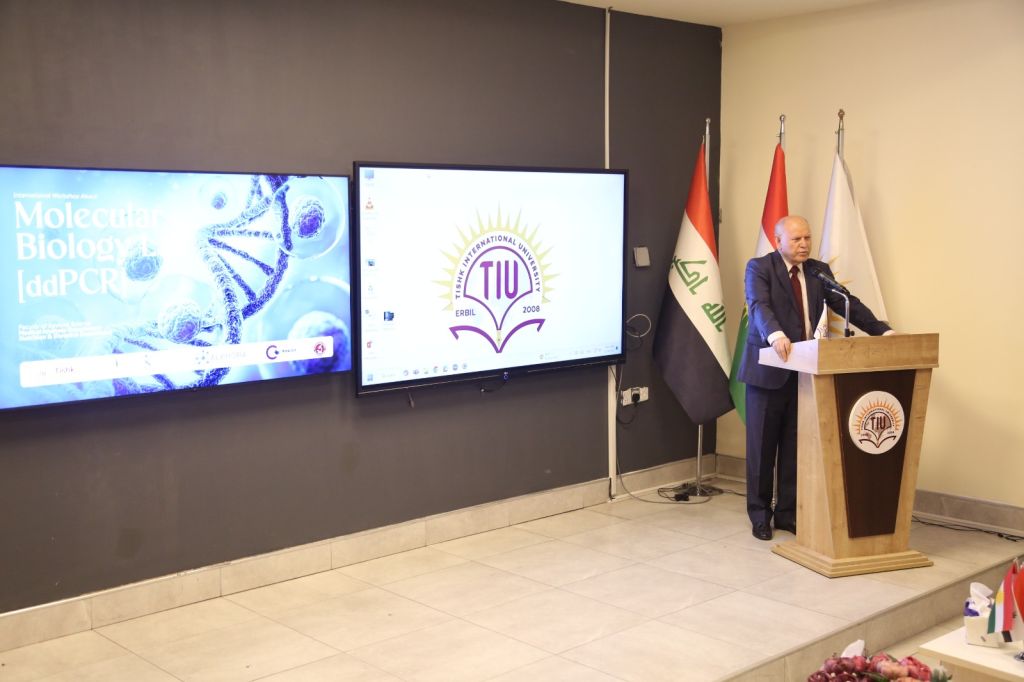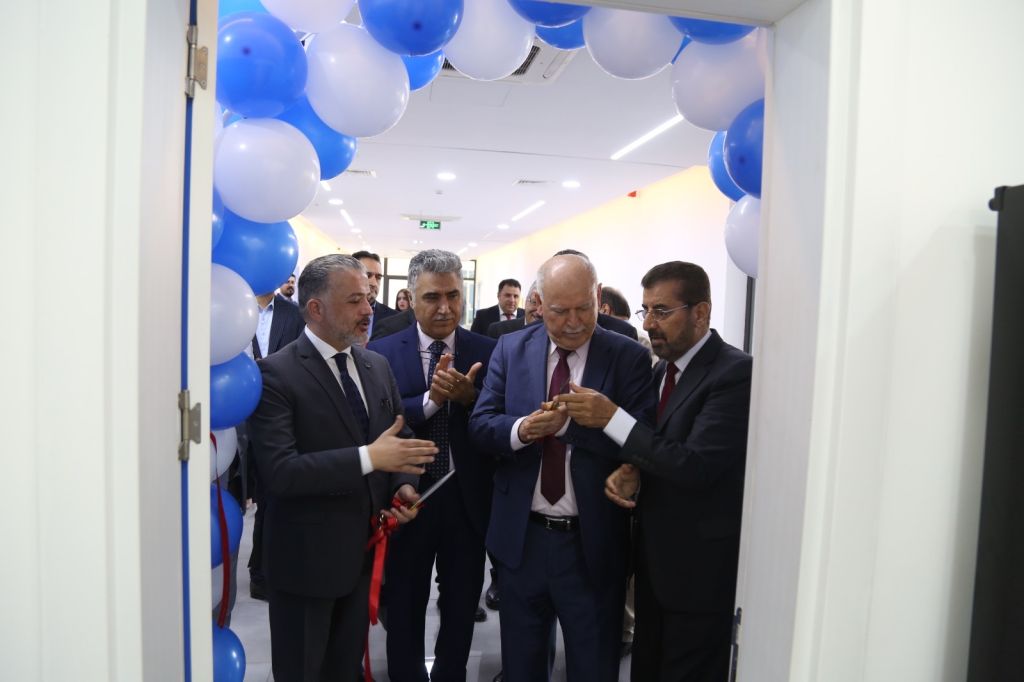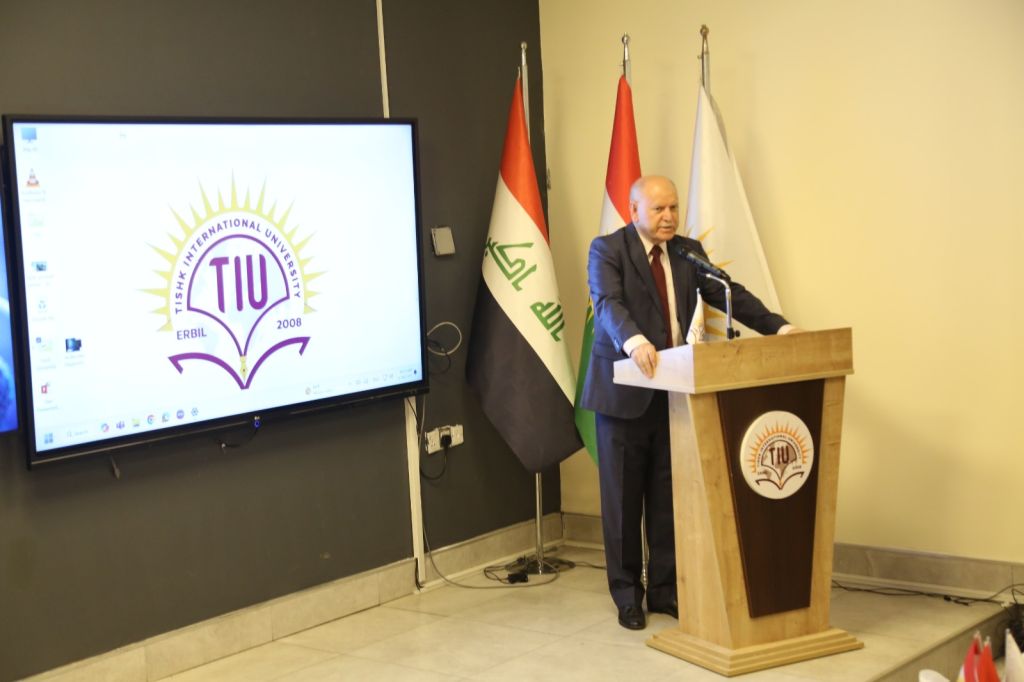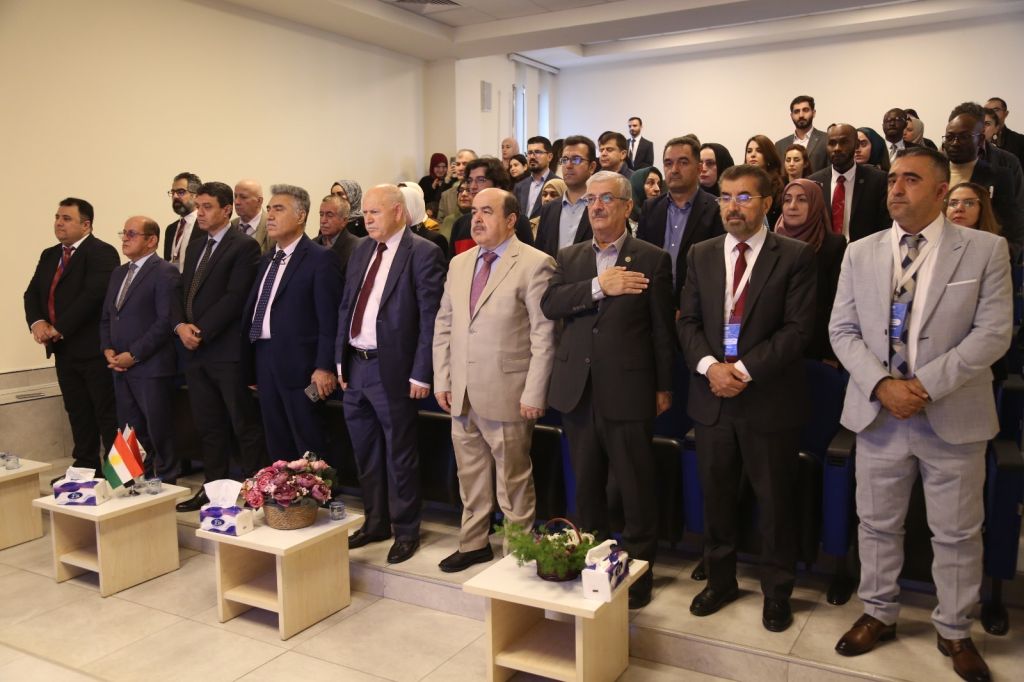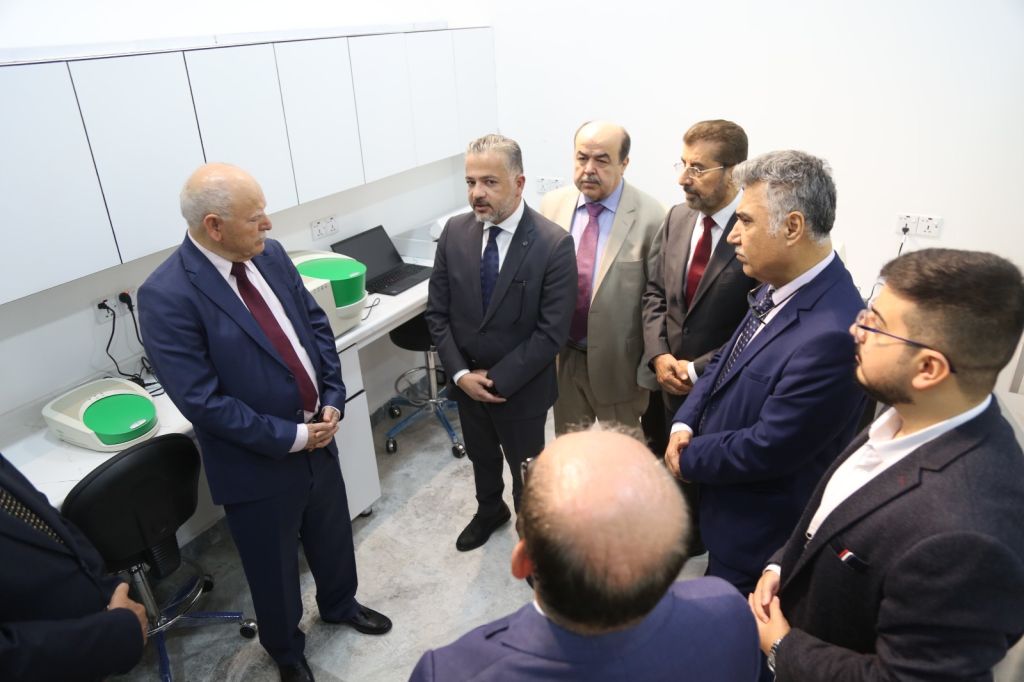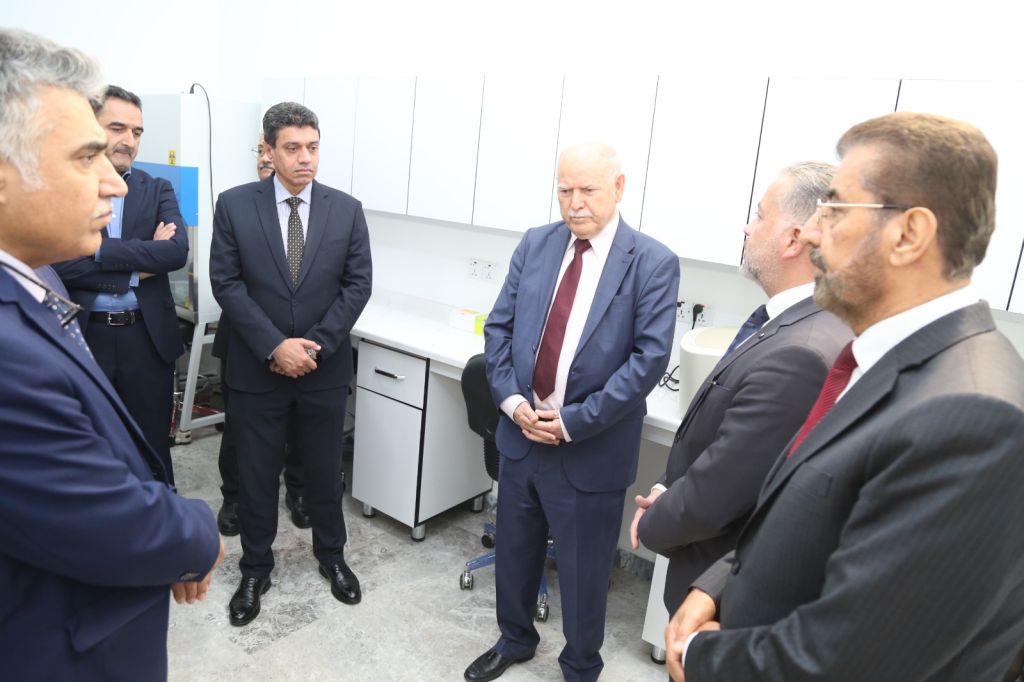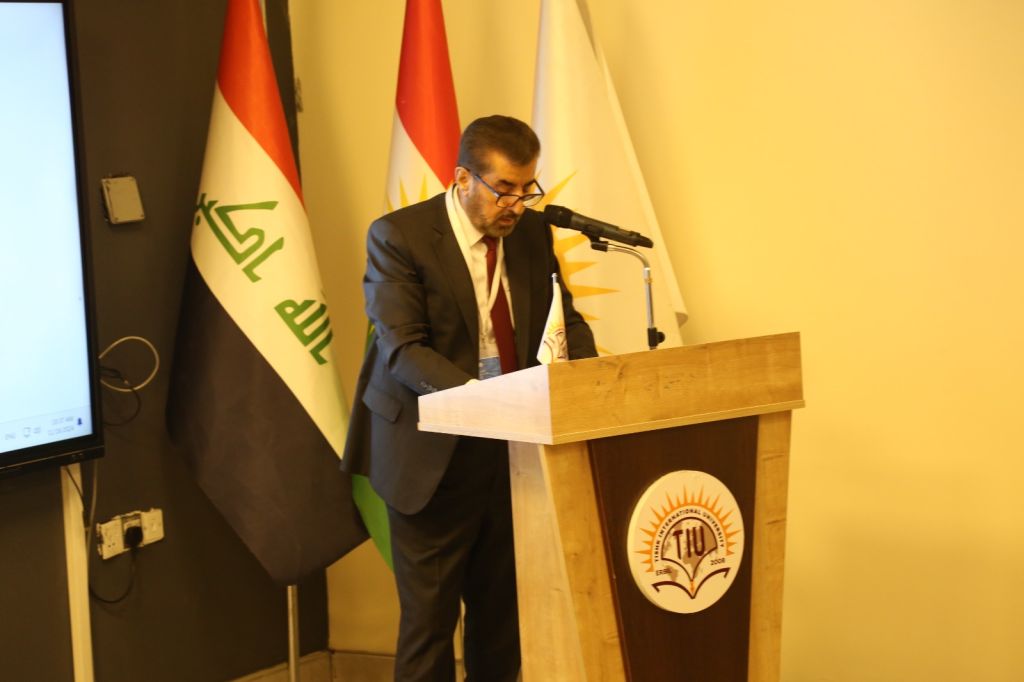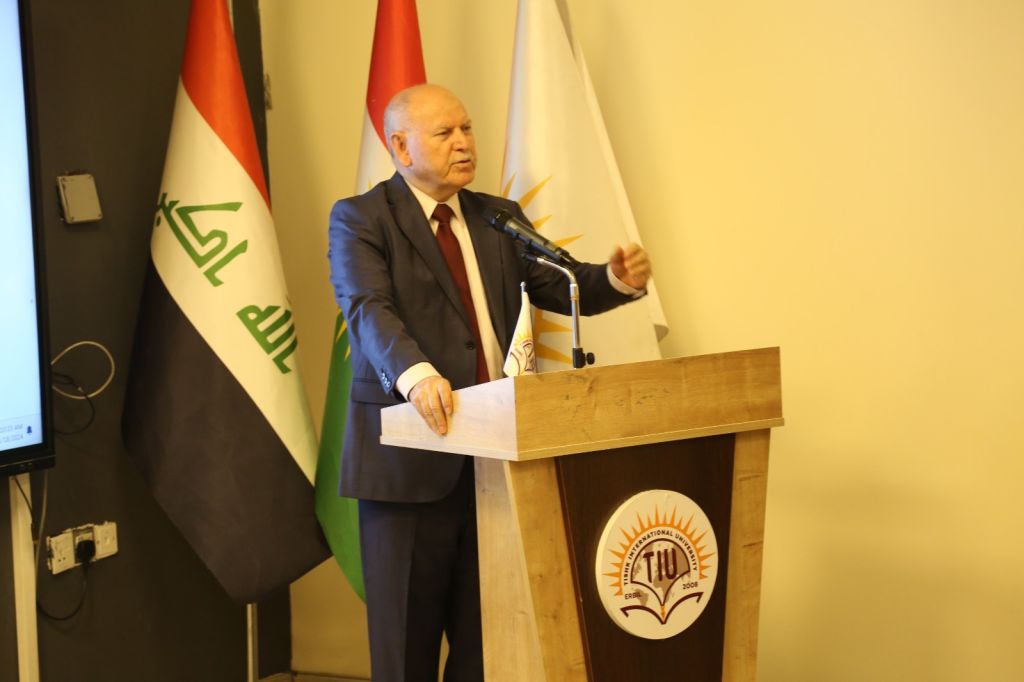On November 18, 2024, Tishk International University’s (TIU) Molecular Biology Lab officially opened its doors. To mark the occasion, the Medical Analysis and Nutrition and Dietetics Departments at the Applied Science Faculty held an international workshop in collaboration with the Biotech Laboratory from Amman, Jordan.
The workshop was attended by esteemed guests, including Prof. Sultan Abu Orabi, President of TIU; Dr. Mehmed Ozdemir, Vice President of TIU; and Prof. Faiq Hussain, Dean of the Faculty of Applied Sciences at TIU. Guests from other universities, including the Hawler Medical University, Erbil Polytechnic University, and the Catholic University in Erbil, also attended.
Key Speakers and Presentations
The workshop featured three key speakers who presented on specialized topics in molecular biology:
- Dr. Ayman Aldabsheh: The first speaker was the General Manager of Al Rayyan International Scientific Company (RISC), a biotechnologist, and a genetics engineer with over 20 years of experience. His presentation, “Digital PCR: A Revolutionary Approach to Nucleic Acid Quantification,” discussed the principles, applications, and advantages of using Digital Droplet PCR (dPCR), a technique for absolute quantification of nucleic acids.
- Dr. Mukhlis Hamad: The second speaker, an expert in human molecular genetics, presented an “Overview of Molecular Diagnostics Laboratory Techniques.” He highlighted essential tools like Polymerase Chain Reaction (PCR) and fluorescence in situ hybridization (FISH), used to diagnose and monitor diseases.
- Dr. Nader Ghanayem: The third speaker, a molecular biologist and scientific and technical manager of RISC, presented on “Genetic Test for Diet & Fitness.” He focused on the role of nutrigenomics, which explores how food and genetic makeup interact to influence health and disease risk. He also explained the sampling process, which involves a buccal swab.
The event fostered an engaging atmosphere, with active participation from attendees who asked questions and shared their thoughts. Overall, the event was a great success.
Keywords: Molecular Biology, ddPCR, International Workshop, Tishk International University, Medical Analysis, Nutrition and Dietetics, Biotech Laboratory, Dr. Ayman Aldabsheh, Dr. Mukhlis Hamad, Dr. Nader Ghanayem, Digital PCR, Molecular Diagnostics, Nutrigenomics, Genetics, Erbil, Kurdistan Region
